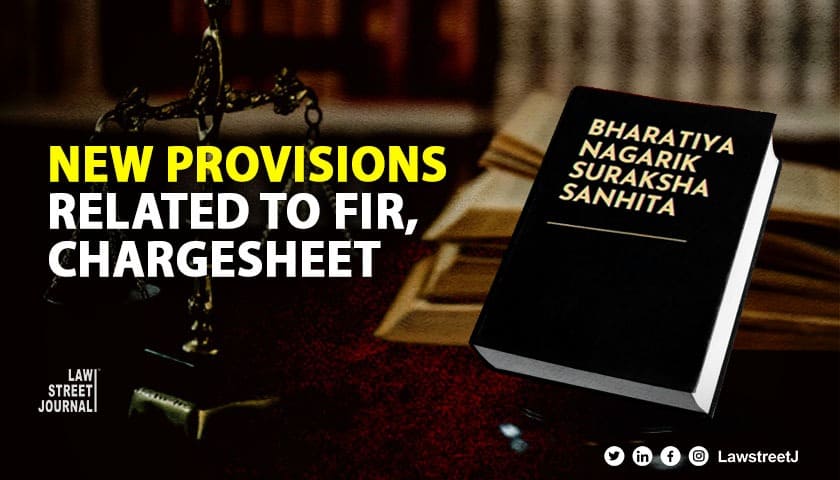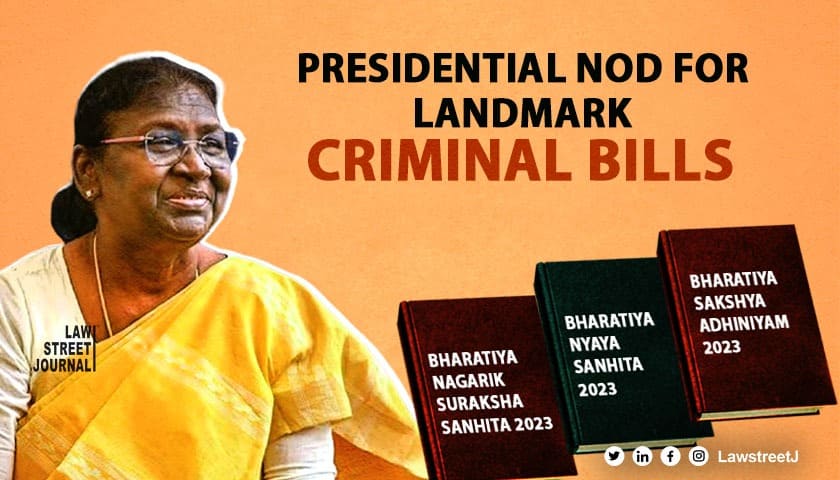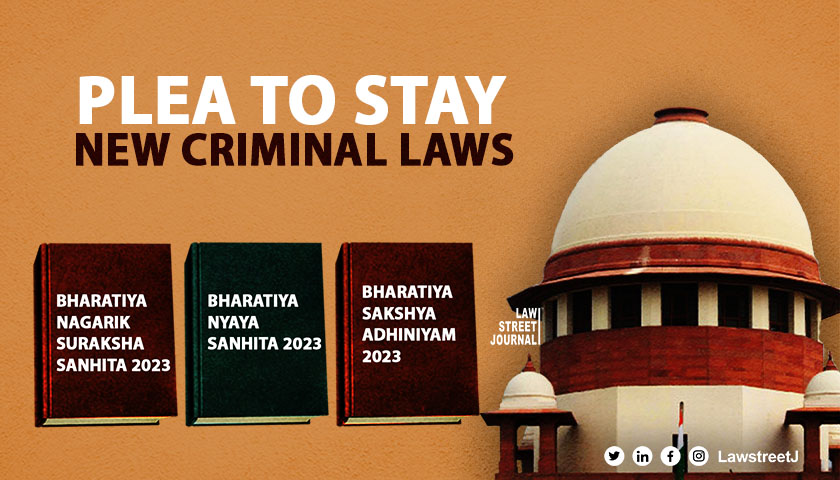The Bharatiya Nagrik Suraksha Sanhita, which is all set to replace the Colonial era Criminal Procedure Code, prescribes timeline for filing of FIR, charge sheet, taking of cognisance, besides offering a transformative approach to reporting crimes against women through e-FIR.
In order to make speedy justice possible, timeline has been added in 35 sections. In BNSS, the FIR has to be taken on record within three days by the person giving the complaint through electronic communication.
The medical examination report of the victim of sexual harassment will be forwarded by the Medical Examiner to the investigating officer within seven days.
Victims/informants will be informed about the status of the investigation within 90 days. The framing of charge will have to be done by the competent magistrate within 60 days from the first hearing of the charge.
As per the new law, to expedite the trial, initiation of trial in absentia against criminals declared by the court before the framing of charges will happen within 90 days.
The passing of judgment shall not exceed 45 days after the conclusion of the trial in any criminal court. The decision of acquittal or conviction by the Sessions Court shall be within 30 days from the completion of arguments, which may be extended up to 45 days for reasons mentioned in writing.
The new law offered a transformative approach to reporting crimes against women through e-FIR, which is to help in prompt reporting of sensitive crimes.
The new Bill also allow e-FIR for cognizable offenses where the accused is unknown. Electronic platforms also provided a discreet opportunity for victims to report crimes.
It also provided for enhancing the use of technology by creating the world's most modern justice system. The use of technology has been allowed at all stages from crime scene investigation till trial, along with transparency and accountability in police investigation.
With this, the quality of evidence will improve and the rights of both the victim and the accused will be protected.
This is seen as a positive step towards modernising the criminal justice system. Case diary from FIR, charge sheet from case diary and judgment will all be digitised. A register containing e-mail addresses, phone numbers or any other such details will be maintained by all police stations and courts.
During search and seizure, audio-video recording has been mandatory. The audio-video recording should be presented before the magistrate 'immediately'. Requirement for videography of the process of collecting forensic evidence. Option of audio-video recording of any statement has been given during police investigation.
By simplifying the process, now petty cases will be expedited through summary trial, which has been made mandatory for less serious cases, such as theft, receiving or possessing stolen property, unauthorised entry into house, disturbing peace, criminal intimidation etc.
In cases where the punishment is up to 3 years (earlier 2 years), the Magistrate may conduct a summary trial in such cases for reasons to be recorded in writing. The competent authority will take a decision within 120 days on consent or disagreement to conduct prosecution against civil servants, if not, it will be assumed that permission has been granted. Evidence of civil servants, experts, police officers and the person holding its charge will be able to give testimony on such document or report.
With regard undertrial prisoner, it has been stated if a person is a first-time offender, and has served one-third of the imprisonment, he will be released on bail by the court. Where the undertrial prisoner has completed half or one-third of the term, the Jail Superintendent should immediately apply in writing to the court.
Under the Witness Protection Scheme, the State Government will prepare and notify it for the State.
A new provision has been made for attachment and confiscation of assets outside India, in cases of declared criminals. Earlier, Proclaimed Offender could be declared only in 19 crimes, now 120 crimes have been brought under its ambit.
With regard to disposal of assets, it has been noted a large number of case properties are lying in the police stations of the country so provision has also been made for speedy disposal of such properties during investigation, preparation of property details and photographs/videography by the Court or Magistrate and photo or videography can be used as evidence in any investigation, trial or other proceeding.
[Read The Bharatiya Nagarik Suraksha (Second) Sanhita 2023 Bill]








![Following & abusing woman will not come under outraging modesty of woman: Bombay HC [Read Order]](/secure/uploads/2024/01/lj_8512_394d7279-ef5c-4356-982e-d69b581a5770.jpg)






